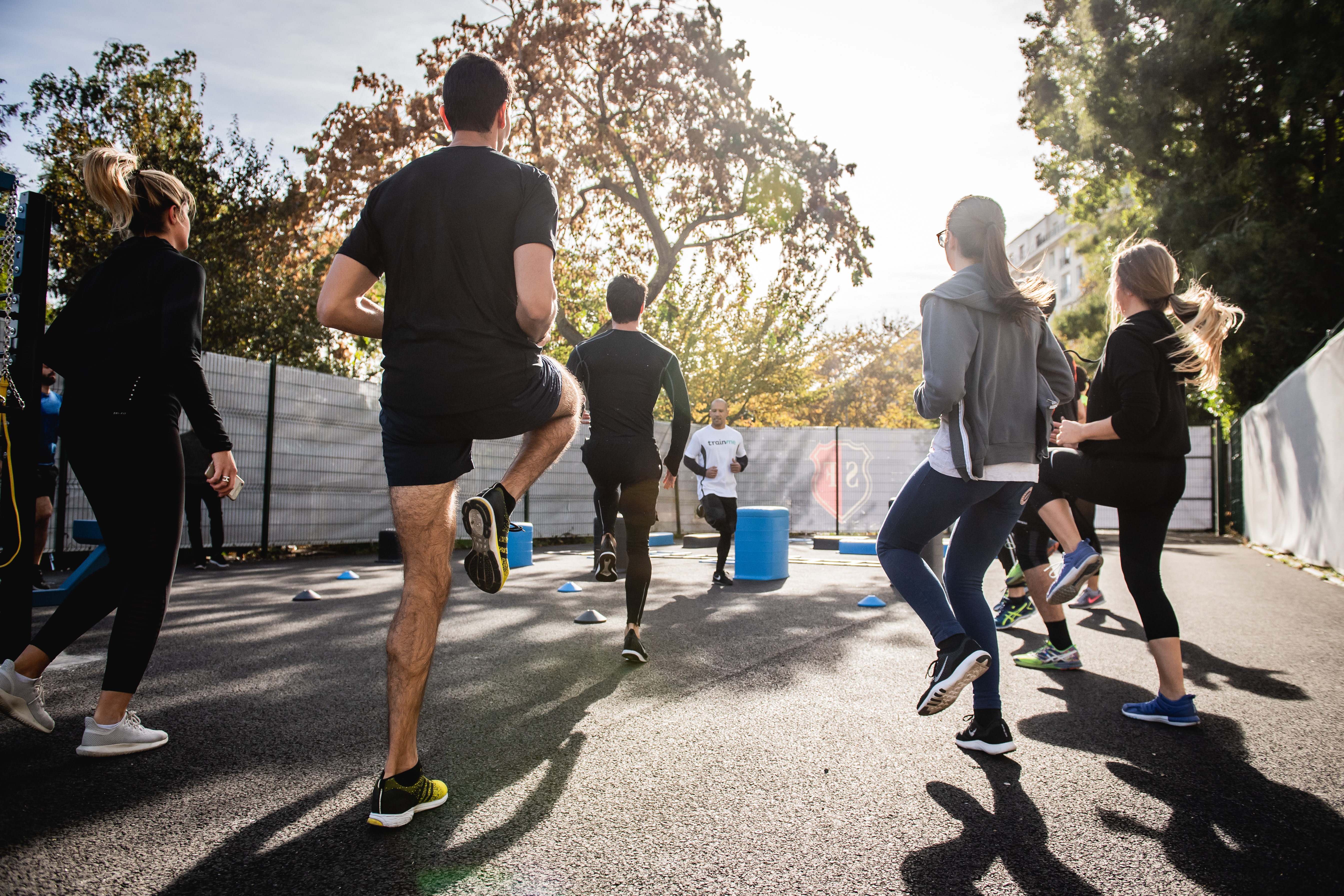Is Exercise Safe For Conception?
As fertility dietitians, we spend a lot of time with patients talking about lifestyle factors and exercise. Patients ask all the time: “How much should I be exercising? Does too much or too little exercise affect my ability to get pregnant? Is exercise safe for conception?” So were here to discuss the impact exercise has on reproductive health, fertility, and pregnancy.

One important caveat to remember is that everyone’s body has unique needs. The recommendations you receive regarding exercise might be pretty different from the recommendations your friend will receive. Advice may vary greatly depending on your overall health, any chronic conditions you may have, and your current exercise regimen.
Moderate exercise is generally safe while trying to conceive. It’s more important to consider maintaining a healthy body fat percentage, staying active, and managing stress which is crucial for overall well-being for fertility. When it comes to exercise and fertility, there are a few benefits and considerations to be aware of, as well as what types of exercises are generally considered best and how to best approach physical activity during this time.

General Recommendations on Exercise
According to the Centers for Disease Control (CDC), physical activity may have an immediate and positive impact on brain health, bone and muscle strength, and weight management. Additionally, it may also reduce your risk of cardiovascular disease, type 2 diabetes, and metabolic syndrome. The World Health Organization (WHO) recommends adults between the ages of 18 and 64 engage in 150 minutes of moderate-intensity physical activity which may include walking, cycling, or doing sports.
Benefits of Exercise
Overall, exercise is good for you. When we think of exercise and reproductive health, our question becomes does too much or too little exercise help or hurt fertility — and can exercise improve some endocrine conditions such as irregular periods or polycystic ovary syndrome (PCOS)?
In short, exercise is recommended for most women before they’re trying to conceive, and the benefits usually outweigh the risks. One prospective study of over 17,000 women without a history of infertility was followed over several years to assess the time of pregnancy. The researchers demonstrated that women who followed five or more low-risk lifestyle factors (such as eating balanced meals and getting in at least 30 minutes of physical activity per day) had a 69% lower risk of ovulatory disorder infertility. This study suggests that ovulatory infertility may be preventable through nutrition and exercise choices.

How much is too much exercise & how does it affect fertility?
In the realm of fertility, vigorous exercise can have a profound effect, more so, when there is an energy deficit. When your body doesn’t get enough energy from food to perform its essential functions, it means you are experiencing an energy deficit. The reproductive system is highly sensitive to energy deficit.
Causes of infertility with too much exercise
- Luteal phase defects, where the post-ovulatory phase is shortened.
- Low levels of progesterone in the post-ovulatory phase – progesterone is required for preparation of the lining of the uterus for implantation and for support of pregnancy. When the levels are low, poor implantation may occur.
- Hormones responsible for ovulation i.e GnRH, FSH, LH and estradiol are suppressed, causing ovulatory dysfunction.
- The hormone leptin, which interferes with appetite and the intake of healthy fat and adequate calories, is suppressed.

Fertility can be affected by body weight and body fat composition.
A minimum of 17% body fat is required for menstruation and 22% is required for maintenance of ovulation. If the levels fall below this, ovulatory disturbances and menstrual irregularities can occur causing difficulty in conception.
Recent studies have shown that exercise-induced stress is not the main cause of reproductive dysfunction. Rather, it is believed that the body conserves energy which results in an energy deficiency and in turn, a deficiency of necessary nutrients. Most of these nutrients are needed for the normal production of reproductive hormones. Estrogen and progesterone concentrations decline, resulting in a spectrum of exercise-associated menstrual disturbances (EAMD).

Now is not the best time to start a new, intense exercise routine. Gentle, moderate exercise is best. If you’re already regularly engaged in vigorous physical activity, talk to a dietitian or healthcare provider for advice.
Some exceptions to exercising while trying to conceive
- If you regularly engage in vigorous physical exercise: More research is needed on the effects of exercise and ovulation. However, one comprehensive review of studies published up to April 2016 showed an increased risk of anovulation (ovaries not releasing an egg during menstruation) in women who exercised heavily, more than 60 minutes a day. This same study showed a reduced risk of anovulatory infertility in women who vigorously exercised 30 to 60 minutes per day.
- If you’re a competitive athlete: The ACOG recommends maintaining close communication with your healthcare provider due to an often-strenuous training schedule.
- If you are about to begin or are in the middle of IVF treatments: It is best to follow the plan put forth by your dietitian and healthcare provider.
Overview:
The implications of exercise
- Aerobic exercise for 7 or more hours a week, may increase the risk of ovulatory problems.
- Vigorous exercise may decrease fertility in women with normal weight.
- Moderate exercise, for over an hour and less than 5 hours per week, increases fertility in all women.
- Strenuous exercise, for more than 4 hours per week, decreases IVF success rates.
Recommendation for exercise for achieving pregnancy
- Those doing intense workouts for more than 2 hours should reduce this amount.
- Replace some of the workouts with moderate exercise.
- Limit strenuous activities to 4 hours/week, if weight loss is required.
- If overweight, losing even 10% of body weight can improve fertility.
If you are concerned about your exercise regimen and how it can affect fertility, book a consultation with one of our expert-certified fertility dietitians & nutritionists for individualized nutrition & supplementation advice




